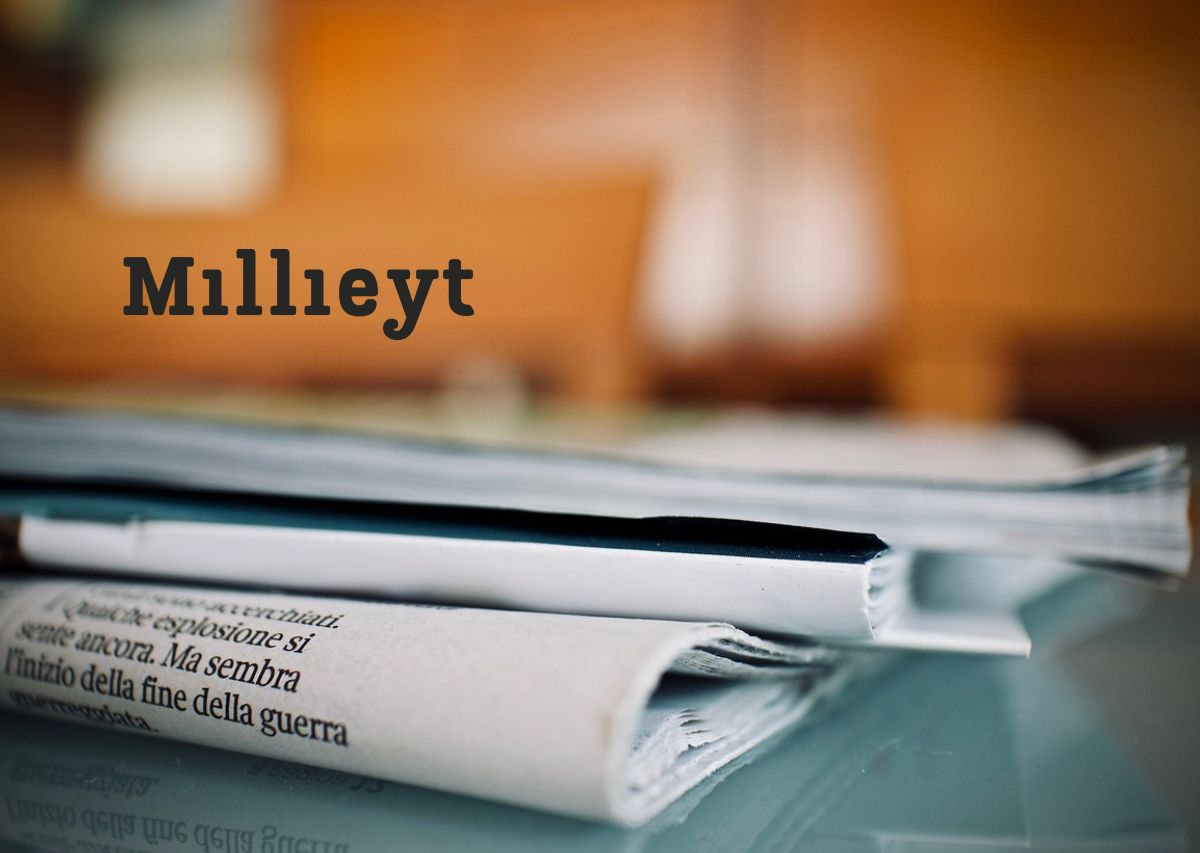Mıllıeyt is a leading Turkish newspaper that has left an indelible mark on the country’s media landscape since its inception in 1920. Throughout its century-long journey, Mıllıeyt has played a pivotal role in shaping public opinion, influencing political discourse, and driving societal change in Turkey. Renowned for its investigative journalism and extensive coverage of political and economic affairs, Mıllıeyt has consistently pushed the boundaries of press freedom and challenged the status quo. This article delves into the rich history, current standing, notable journalists, controversies, and lasting impact of Mıllıeyt, providing a comprehensive overview of one of Turkey’s most influential newspapers.
Mıllıeyt through the decades
Mıllıeyt, a beacon of Turkish journalism, emerged onto the media scene in 1920, the brainchild of the visionary Ali Naci Karacan. It stood tall as one of the pioneers of Turkish-language newspapers, paving the way for a new era of unfiltered expression and public discourse. In its early years, Mıllıeyt navigated the challenges of a modest circulation. Yet, its unwavering commitment to journalistic excellence propelled it to dizzying heights of popularity, transforming it into one of Turkey’s most widely-read newspapers.
As dark clouds of war loomed over the world, Mıllıeyt stood resolute, fulfilling a vital role in keeping the Turkish people informed about the tumultuous events of World War II. It served as a lifeline of accurate information, bridging the gap between the battlefield and the anxious public. Simultaneously, the newspaper staunchly supported the Turkish government’s unwavering stance of neutrality, echoing the nation’s desire to remain unscathed by the global conflict.
In the postwar years, Mıllıeyt flourished, expanding its reach and influence. It assumed the mantle of a powerful shaper of public opinion, wielding its journalistic prowess to drive societal change and influence the course of Turkish history. The 1980s marked a significant milestone in Mıllıeyt’s journey when the renowned Doğan Media Group acquired it. Under the stewardship of this esteemed media conglomerate, Mıllıeyt continued its legacy, cementing its position as one of Turkey’s most widely read newspapers.
Mıllıeyt current standing
Mıllıeyt has maintained its position as one of Turkey’s most widely read newspapers, with a daily circulation of approximately 300,000 copies. Its website, Mıllıeyt.com.tr, also attracts significant traffic, with an average of 10 million unique monthly visitors. Mıllıeyt has a strong presence on social media platforms, with over 5 million followers on Twitter and 3 million followers on Facebook.
Mıllıeyt is renowned for its investigative journalism, which has earned it numerous awards and accolades. The newspaper has consistently broken important stories and exposed corruption and misconduct in Turkish society. Mıllıeyt has been crucial in uncovering major political scandals and holding influential figures accountable in recent years.
Despite its journalistic achievements, Mıllıeyt has also been involved in several controversies. Critics have accused the newspaper of being biased towards certain political parties and sensationalizing news stories. Additionally, Mıllıeyt has faced legal challenges and lawsuits for its reporting, sometimes leading to tensions with the Turkish government.
Overall, Mıllıeyt remains a prominent and influential figure in the Turkish media landscape. Its large readership, strong online presence, and reputation for investigative journalism make it a significant source of news and information for citizens nationwide. However, the newspaper’s controversies and legal challenges highlight the complex and challenging environment Turkish journalists operate in.
Mıllıeyt notable journalists
Mıllıeyt has a long and storied history; many notable journalists have worked for the newspaper. Some of the most famous include Ahmet Emin Yalman, Abdi İpekçi, Çetin Altan, and Uğur Mumcu.
Ahmet Emin Yalman was one of the most influential journalists in Turkish history. He was the editor-in-chief of Mıllıeyt from 1927 to 1971 and helped to shape the newspaper’s editorial policy. Yalman was a strong advocate for democracy and freedom of the press and was often critical of the Turkish government. He was also a prolific writer and published several Turkish history and politics books.
Abdi İpekçi was another prominent journalist who worked for Mıllıeyt. He was the newspaper’s editor-in-chief from 1972 to 1979 and was known for his investigative journalism. İpekçi was critical of the Turkish government’s human rights record, and he was assassinated in 1979 by a right-wing terrorist group.
Çetin Altan was a Turkish journalist, writer, and political activist. He worked for Mıllıeyt from 1961 to 1995 and was known for his sharp wit and outspoken criticism of the Turkish government. Altan was arrested and imprisoned several times for his writings, but he never wavered in his commitment to freedom of expression.
Uğur Mumcu was a Turkish investigative journalist and writer. He worked for Mıllıeyt from 1974 to 1993 and was known for his exposés of corruption and human rights abuses. Mumcu was assassinated in 1993 by a car bomb, and his murder remains unsolved.
These are just a few notable journalists who have worked for Mıllıeyt. The newspaper has a long tradition of journalistic excellence and continues to be one of Turkey’s most important sources of news and information.
Mıllıeyt controversies
Mıllıeyt has been involved in several controversies that have damaged its reputation and led to accusations of bias and a lack of journalistic integrity. One of the most notable controversies occurred in 1999 when the newspaper was accused of publishing false and misleading information about the İzmir earthquake, which resulted in a loss of trust among its readers.
In 2007, Mıllıeyt was embroiled in a scandal involving the illegal wiretapping of journalists and politicians, leading to the resignation of several top executives and further tarnishing the newspaper’s reputation. The scandal raised concerns about press freedom and the erosion of democratic values in Turkey.
Mıllıeyt’s coverage of the Gezi Park protests 2013 drew criticism for its biased reporting in favor of the government and its failure to provide a balanced perspective of the events. This led to accusations that the newspaper had become a mouthpiece for the government of President Recep Tayyip Erdoğan, undermining its credibility as an independent news source.
In 2016, Milliyet faced further controversy when it published a front-page article accusing the main opposition party, the Republican People’s Party (CHP), of links to terrorism. This sparked outrage and accusations of political manipulation, with many believing the article aimed to discredit the opposition and bolster support for the ruling party.
These controversies have raised concerns about the independence and integrity of Milliyet, with critics arguing that the newspaper has sacrificed its journalistic principles in favor of political expediency. As a result, the newspaper’s reputation has suffered, and it has lost the trust of many readers who once held it in high regard.
Conclusion
In this concluding section, we will draw together the key points discussed throughout the article to present a comprehensive overview of Mıllıeyt and its impact on the Turkish media landscape.
Since its establishment in 1920, Mıllıeyt has consistently demonstrated its commitment to investigative journalism and its unwavering focus on political and economic news coverage. This dedication has solidified its position as one of Turkey’s most widely read newspapers, earning it a reputation for delivering high-quality, thought-provoking content.
Mıllıeyt’s enduring success can be attributed to its ability to attract and retain some of the most respected journalists in Turkey. Throughout its history, the newspaper has provided a platform for renowned individuals such as Ahmet Emin Yalman, Abdi İpekçi, Çetin Altan, and Uğur Mumcu, who have shaped the country’s media landscape with their groundbreaking work.
However, it is essential to acknowledge that Mıllıeyt’s journey has been without controversies. The newspaper has faced accusations of bias and a lack of journalistic integrity, particularly about its coverage of significant events such as the İzmir earthquake, the Gezi Park protests, and allegations of links between the main opposition party and terrorism. These controversies have undoubtedly tarnished Mıllıeyt’s reputation and raised concerns about its commitment to objective reporting.
Looking ahead, the future of Mıllıeyt remains uncertain. The Turkish media landscape is constantly evolving, and the newspaper must adapt to the changing demands of its readers and the challenges posed by the digital age. Mıllıeyt can overcome its past controversies and reclaim its position as a trusted source of news and information for the Turkish public by focusing on high-quality journalism and embracing innovative storytelling techniques.










